Our latest Regional Speakeasy, ‘The state of free speech in Northern Ireland’, took place in Belfast’s Titanic Hotel on Friday, where FSU General Secretary Toby Young was joined on-stage by the lawyer Simon Chambers, who is involved in two important free speech cases in Northern Ireland, the journalists David Quinn and Ella Whelan, writer and psychotherapist Stella O’Malley, and gay rights campaigner and former Ulster Unionist Party politician Jeffrey Dudgeon MBE.
Non-FSU members can watch a 15-minute clip of the event below (and join us to unlock the rest of the event video by clicking here), while FSU members get exclusive access to the full event video over on our website.
The state of free speech in Northern Ireland.
— The Free Speech Union (@SpeechUnion) February 5, 2024
The video from our recent Belfast Speakeasy, is now available to watch over on YouTube — link is below! https://t.co/hdsGF0REBX@toadmeister @Ella_M_Whelan @DavQuinn @stellaomalley3 @andrewdoyle_com pic.twitter.com/ypgZESjWS9
We sold over 200 tickets for the event, making this our biggest Regional Speakeasy to date, while also managing to attract a significant amount of national press coverage into the bargain (in the Belfast News Letter here and here; and in the Belfast Telegraph here and here).
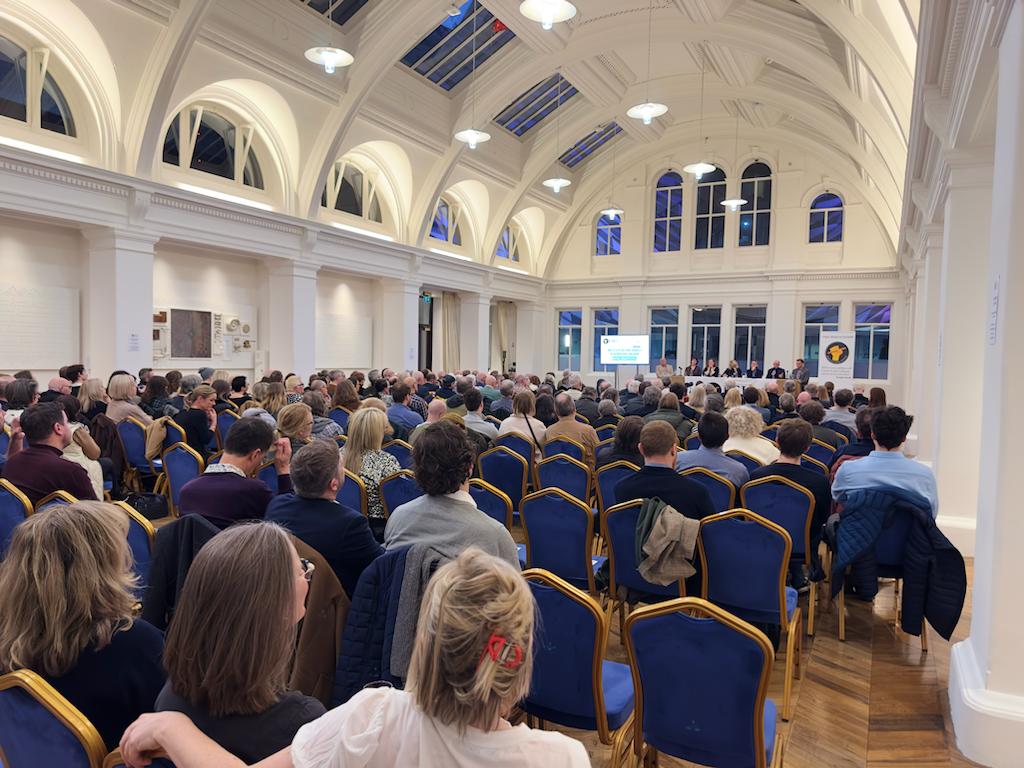
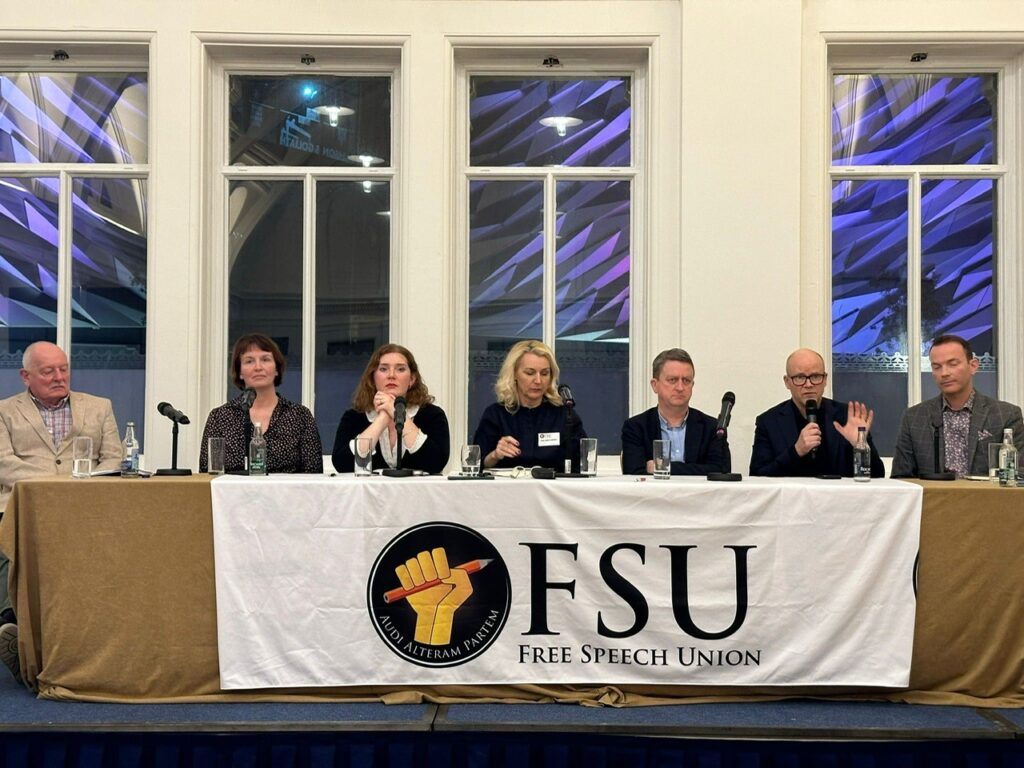
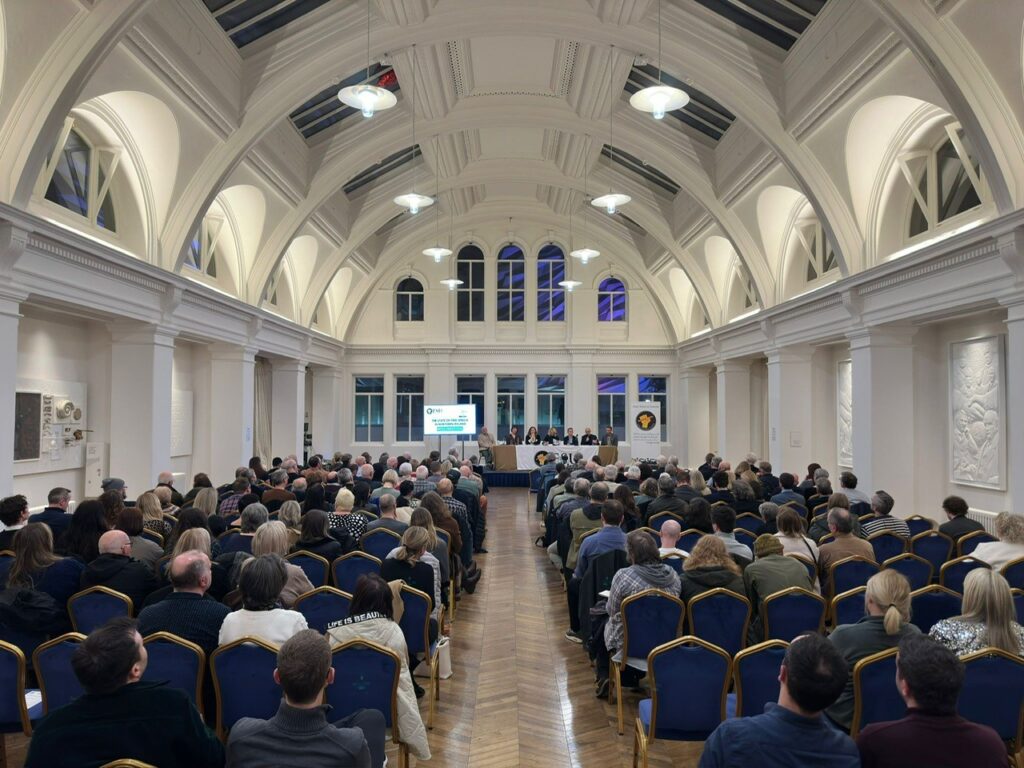
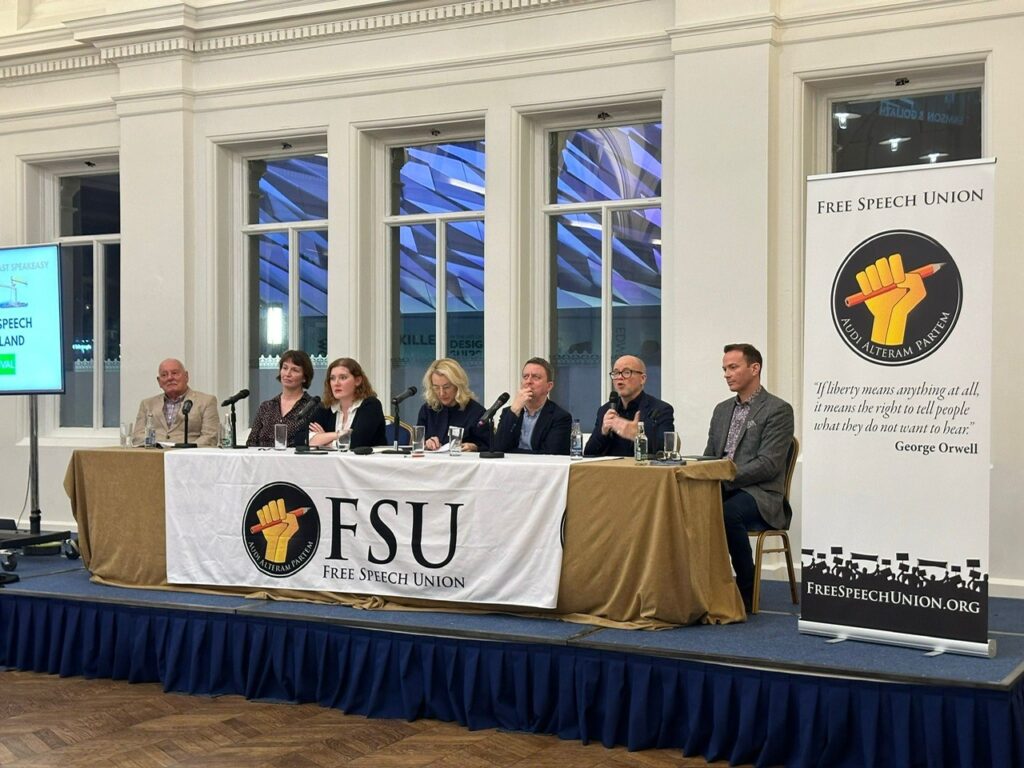
That’s great for us as an organisation, but also indicated that the people of Northern Ireland are increasingly concerned at the perilous state of free speech, something that was also borne out by an opinion poll we commissioned last year.
On which note, there were many issues – too many, in fact – for the panel to discuss on the night, including Queen’s University Belfast’s recent decision to order every single person who sets foot on campus to use the preferred pronouns of students and staff or face punishment under its newly revised code of conduct, as well as the newly enacted Northern Ireland Bill (Sexual Offences and Trafficking Victims) Act, which clips the wings of the free press, handing the judiciary power to decide which bits of recent news regarding reports of serious sexual misconduct it’s in the public interest for ordinary citizens to read about.
Jeffrey Dudgeon made the interesting claim that Northern Ireland was “the birthplace” of identity politics, and served as “a seedbed, laboratory or testing ground” for trends eventually taken up in “London and beyond” and used to inhibit free speech. (You can read an abridged version of Jeffrey’s opening remarks here.)
David Quinn agreed, noting that in order to “live down” its reputation as divided and sectarian Northern Ireland has all too casually embraced critical social justice ideology – the ultimate irony of course being that wokery of this kind is “just another form of sectarianism”.
One of the issues that Ella Whelan, Stella O’Malley and Toby Young spoke about was the fact that Northern Ireland is busy developing one of the most draconian hate crime bills in the UK, which has serious implications for free speech.
The proposals for this legislation followed in the wake of a major independent review of hate crime legislation by Judge Desmond Marrinan.
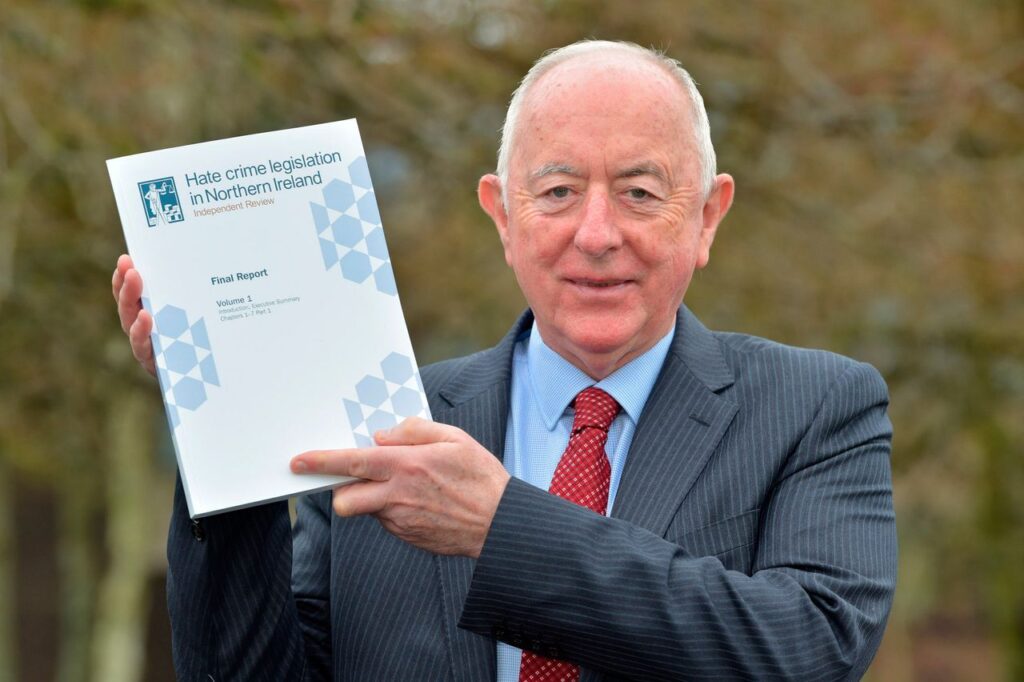
Following publication of the Marrinan Review in 2020, the NI Department of Justice immediately accepted 22 of his 34 recommendations, including those that would: create a new statutory aggravation for ‘sectarian prejudice’ (meaning if a crime was committed with a sectarian dimension, the sentence could be higher than if it was an ordinary crime); make ‘transgender identity’ a protected characteristic; frame legislation to allow more groups to be added to the ‘protected’ list in future; extend the ‘stirring up hatred’ offence so it applied to all the groups on the ‘protected’ list; repeal the dwelling defence, whereby a person cannot be prosecuted for stirring up hatred in the privacy of their own home; and prohibit online content that is ‘legal but harmful’.
As Toby said at the event, the FSU is particularly concerned that increasing the number of ‘stirring up’ offences, and criminalising expressions of ‘sectarian prejudice’, will inhibit public debate and risk inflaming existing political tensions in NI by creating a censorious atmosphere that empowers the easily offended and facilitates vexatious complaints.
Given that Republicans have a known predilection for ‘lawfare’, the danger is that these proposals could quickly be weaponised by nationalists and used to silence and shut down unionist opposition. That, in turn, could endanger the peace process.
The FSU was involved in phase one of the DOJ’s consultation exercise for this legislation, and pushed back hard against its worst excesses (FSU General Secretary Toby Young was on BBC Radio Ulster’s The Nolan Show to discuss the proposals – you can take a listen here). Needless to say, we’ll be mobilising to engage with phase two – the final phase – which will commence later this year, as well as campaigning to stop as many as possible of the infringements to free speech that are still up for discussion.
The Free Speech Union
85 Great Portland Street
London W1W 7LT
+44 020 3920 7865


